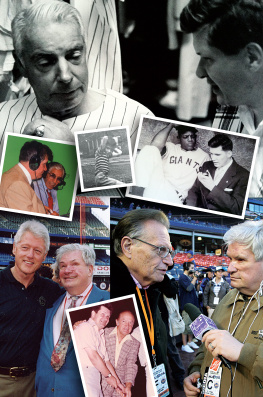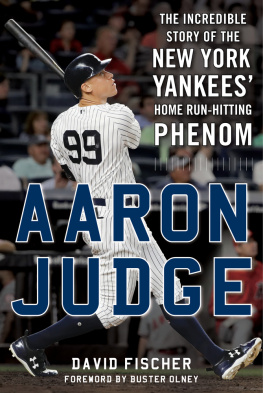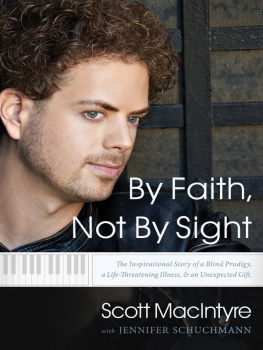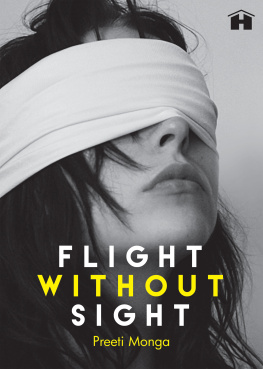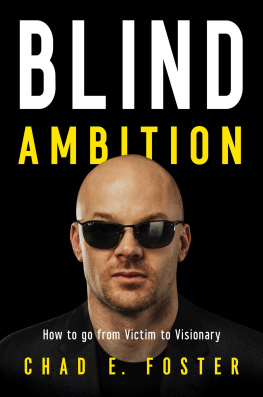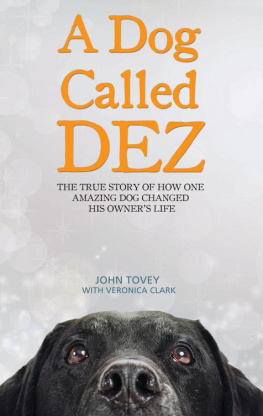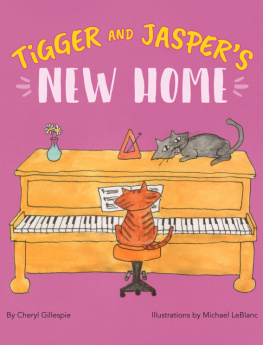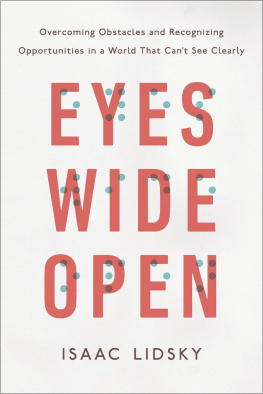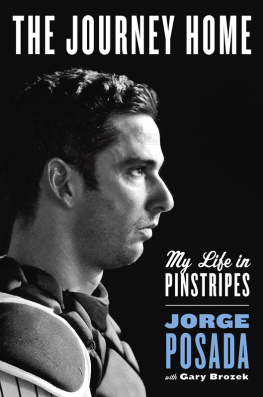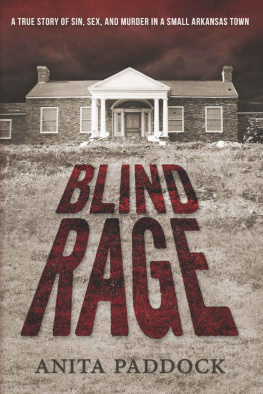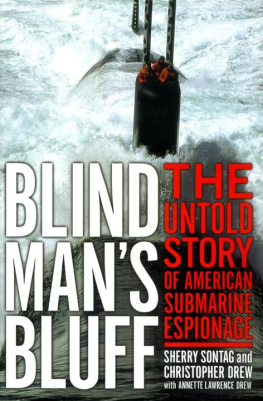

Gallery Books/Jeter Publishing
An Imprint of Simon & Schuster, Inc.
1230 Avenue of the Americas
New York, NY 10020
www.SimonandSchuster.com
Copyright 2015 by Ed Lucas and Christopher Lucas
All rights reserved, including the right to reproduce this book or portions thereof in any form whatsoever. For information, address Gallery Books Subsidiary Rights Department, 1230 Avenue of the Americas, New York, NY 10020.
First Gallery Books hardcover edition April 2015
GALLERY BOOKS and colophon are registered trademarks of Simon & Schuster, Inc.
For information about special discounts for bulk purchases, please contact Simon & Schuster Special Sales at 1-866-506-1949 or business@simonandschuster.com.
The Simon & Schuster Speakers Bureau can bring authors to your live event. For more information or to book an event, contact the Simon & Schuster Speakers Bureau at 1-866-248-3049 or visit our website at www.simonspeakers.com.
Interior design by Renato Stanisic
Jacket design by Jason Gabbert
Jacket photograph Nick Laham/Staff/Getty Images
Photograph of Bill Clinton and Larry King by Bill Menzel Photography
Author photograph by Christopher Lucas
Library of Congress Cataloging-in-Publication Data
Lucas, Ed, 1939
Seeing home : the Ed Lucas story : a blind broadcasters story of overcoming lifes greatest obstacles / Ed Lucas & Christopher Lucas. First Gallery Books hardcover edition.
pages cm
1. Lucas, Ed, 1939 2. BroadcastersUnited StatesBiography. 3. SportswritersNew York (State) New YorkBiography. I. Lucas, Christopher Patrick, 1968 II. Title.
GV742.42.L84A3 2015
384.54092dc23
[B]
2014044203
ISBN 978-1-4767-8583-7
ISBN 978-1-4767-8585-1 (ebook)
In memory of my parents, Edward and Rosanna.
For my beautiful bride, Allison, who is always at my side.
For my sons, Eddie and Christopher, for their love and support, and for my grandsons: E.J., Adam, and Sean.
They have all brought me great joy.
E D L UCAS
For E.J., Adam, Sean, Aiden, and Talon, so that you and your children will always know that love is what kept our family going, through all the peaks and valleys.
To the late and beloved Mrs. Mickey McCahill, who helped run the office at Saint Als.
You always took time to compliment my writing, to encourage me, and to boost my confidence. You also asked for the first copy of the first book I wrote. This ones for you.
C HRISTOPHER L UCAS
Contents
Introduction: Everyone Should Be So Lucky
A pril 2015 marked my sixtieth straight appearance on Opening Day at Yankee Stadium covering the team. A career that I wasnt sure would ever begin has now spanned the eras from Rizzuto to Jeter. It feels odd being one of the elder statesmen, but Im always glad to give advice to any of the new reporters, broadcasters, or bloggers who ask, though as a guy raised on typewriters and twenty-four-hour lags between composing a story and having it appear in print, Im still amazed by the speed at which blogs get posted.
When my grandchildren, E.J., Adam, and Sean, were studying Helen Keller and Louis Braille in school, their teachers would ask me to come by to speak to the class about life as a blind person. Inevitably, the kids would ask me a lot of questions that often got right to the heart of things.
If there was an operation now that could help you see, one of the kids would invariably ask, would you have it?
To their surprise, my answer would always be, No.
At this point, Ive lived six times more of my life as a blind man than as a boy with sight. It would be too much of a shock now for me to return. The only thing I say I wish is for just five minutes of sight, five minutes so I could see my sons, Eddie and Chris, my wife, Allison, and my grandsons, all for the very first time with my own eyes.
One of the kids might also ask me this: If you werent blind, would you still be involved in baseball?
Surprisingly, my answer would be no to that, too.
When I put some thought into the way my life might have turned out if I didnt get hit between the eyes with a baseball in October 1951, causing me to lose my sight, I realized that I probably would have gone into some kind of science.
Baseball was definitely my career choice at twelve years old, as it is for many kids who love sports, but then life and reality set in. Like most, Im sure I would have eventually sought a safer, more traditional profession.
The accident actually left me frozen in time. I was scared that my life was over at twelve, and baseball became an exciting escape route out of that crippling fear. I put my full focus on that, ruling out every other option. I gave myself nothing to fall back on. Happily, it all worked out.
Though I didnt realize it then, God graced me with a wonderful gift: When He took the use of my eyes away, He allowed me to gain an even better vision of the world than I might have ever known.
When you cant see, you are only able to judge people by their character and integrity, not by the color of their skin, or by how they look and dress. Whats inside a persons heart became my measuring stick. I can hear their hearts in their voices. Nobody can hide that from me.
I dont ever feel pity for myself for being struck blind. Ive been given an opportunity to live a life without visual prejudices and with greater empathy for the struggles of others.
This has driven me to work harder to properly honor the Good Lord, who generously chose to bless me with such an abundance of family, friends, moments, and memories. I am determined to give back, to use those same gifts and opportunities to help others overcome any obstacles in their lives, just as I learned to do.
I will cherish these gifts forever, and I am overwhelmingly grateful to God for them.
Everyone should be so lucky.
1
No Cup or Cane
W ool uniforms are extremely uncomfortable, even in cool temperatures.
When I was twelve years old, in the spring of 1951, my mothers brother Eugene gave me the wool uniform jersey he wore when he played semipro baseball in our New Jersey hometown. I remember the pride I felt as I put on the large, heavy gray shirt with the number 4 stitched on the back, and the words Jersey City Eagles on the front. I almost never took it off after that.
It wasnt so bad at first, but when the warm weather came, and summer started heating up, the uniform top seemed to gain fifty extra pounds from all of the sweat my slim body was pouring into it. When school let out, a typical day would go like this: I would get up in the morning, put Uncle Eugenes jersey on, match it with whatever pants I could find, and then head out to play ball with my friends. At noon Id stop to have lunch, try to dry the shirt out a bit, then go back out to play again until I heard my mother calling me for dinner.
Baseball was my life back then. It still is.
My mother, Rosanna, knew how much I loved the game and how much the jersey meant to me. Each night as I went to bed she would lovingly take the shirt from my room and wash it. We lived in a small apartment in a public housing project, so washing machines were not readily available. Instead, she would use an old-fashioned washboard and spend an hour scrubbing out all of the sweat and grime by hand. Then she would hang the shirt up, either inside on the shower curtain or outside on a clothesline, so that it would be ready for me the next day.

